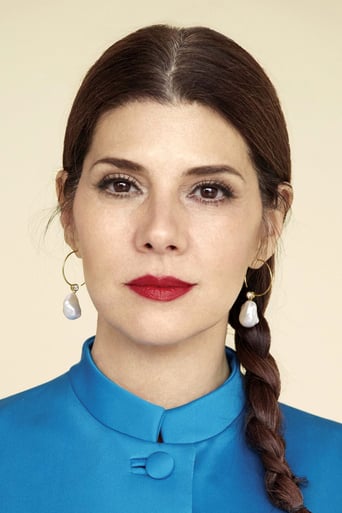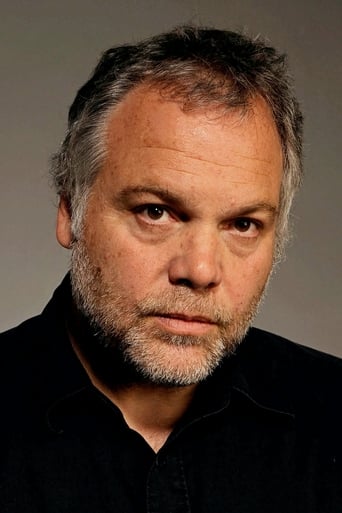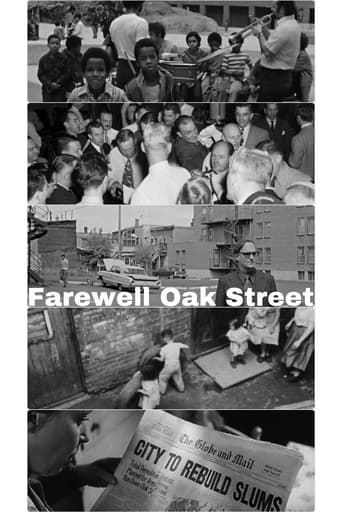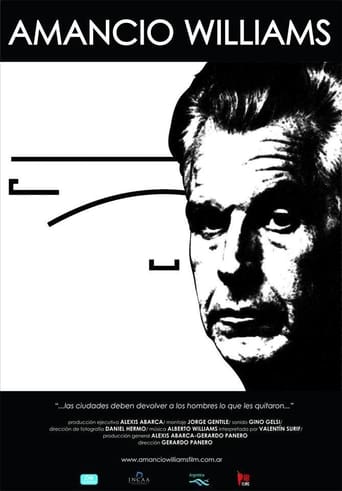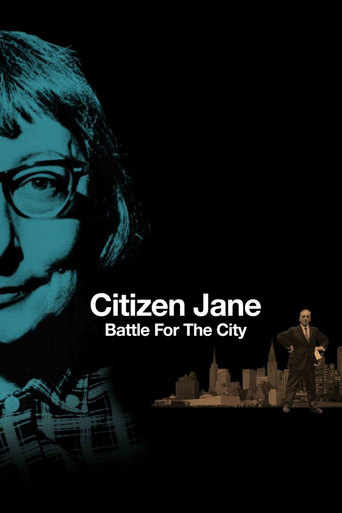

Citizen Jane: Battle for the City (2017)
Writer and urban activist Jane Jacobs fights to save historic New York City during the ruthless redevelopment era of urban planner Robert Moses in the 1960s.
Watch Trailer
Cast
Similar titles
Reviews
You won't be disappointed!
Admirable film.
It's entirely possible that sending the audience out feeling lousy was intentional
what a terribly boring film. I'm sorry but this is absolutely not deserving of best picture and will be forgotten quickly. Entertaining and engaging cinema? No. Nothing performances with flat faces and mistaking silence for subtlety.
Citizen Jane documents the battle between Urban Renewal and Urban Preservation, focusing specifically on post-WWII era New York City. It's painted as a classic David v Goliath story in which reporter/activist Jane Jacobs pits herself against the well-connected developer Robert Moses. It isn't a particularly suspenseful documentary - if you know anything about the current layout of Manhattan, you know the outcome - but it's still a highly educational piece that highlights many of the ongoing debates in the world of urban planning.Those living in small towns or rural areas may not get too much out of this doc, but anyone living in a major city will easily relate to its themes. If I have one complaint, it's that the filmmakers worked a little too hard to paint Moses as a villain. They touch a bit on his early idealism, but then lean into the portrayal of him as a greedy bully. Perhaps he was simply blind to the damage he was doing in his quest to re-build the slums and tenements? I suppose it's a compliment to say that this documentary left me wanting to know more.
Jane Jacobs and the successful battle to oppose Robert Moses' planned lower Manhattan expressway in the 1960s is the focus of this doc, but the film also raises general questions about the overreach of city planners who are too quick to tear buildings down and not very wise about the new buildings and highways that go in their place.It's a huge topic, so it was wise to focus here on Manhattan, where enough forms of political greed and poor planning took place to document the folly that went into projects that were completed, like the Cross-Bronx Expressway, along with some that weren't, like the prospect of bringing urban renewal to the West Village.Lots of footage Moses, Jacobs, and the wrecking ball and we'll put together from beginning to end.
I do not think this film did justice to the rich subject matter the filmmakers tackled. It was very vague and repetitive, with the same shots of buildings being torn down over and over again, and the same lines being repeated by the narrator several times over. Similarly vague lines are quoted from Jacobs' book. Unfortunately the parts they chose that were specific, such as the need to have 'eyes on the street' at all times of day, are not as relevant in the modern day, as there are so many forms of entertainment that people are not likely to sit on their porch or at their window looking out onto the street, even if it is active. They are more likely lying in bed writing a review on IMDb or watching Netflix. However, most of the exposition of Jacobs' ideas don't even rise to that level of specificity. As a result, the viewer barely knows more about Jane Jacobs' criticisms walking out of the movie than going in. The source of Robert Moses' power wasn't explained. Part of the film contains a smug attack on Le Corbusier only to correct itself latter when they said his ideas were misrepresented. They try to jawbone some feminism at moments but never really pursue the idea. The film gives the impression Jacobs won (in America, at least), but ignores that high rise apartments and condos are as popular as ever. The lively "street" that Jacobs defended is not present in these new developments. Communities have migrated online. So did Le Corb win in the end after all?Given the high reviews this received, I expected better. It did show Jacobs' beginnings as a journalist. And there were a few interesting clips of Moses justifying himself. The note he wrote after reading Death and Life was interesting. It shows he did in fact read the book. However, both her and Moses deserve a better documentary.
It's a cliché to write that everyone involved in or studying urban development and planning should see this documentary, because of course they should. And of course they should read Ms. Jacobs' books. But as I witness, or at least fear, the gradual decay of the city I live in - which happens to be the city Ms. Jacobs lived in for the last 20 or so years of her life - I see that the wisdom of this saviour of cities does not seem to be a core part of Toronto's current urban- planning scheme. Maybe that's because, as Ms. Jacobs pointed out, cities develop organically as they are an independent life force. So you can't apply one set of rules for every city as every city is a unique entity. It was obvious to me though after watching Citizen Jane: Battle for the City that there are some enlightened guidelines that everyone responsible for urban development should be aware of. But in the lofty battle of what's good for the city vs. what's bad for the city, Ms. Jacobs' vision of what's good for cities - while noble - was not all-encompassing, not to be used as a blueprint for development, but rather as a compliment to a greater blueprint.One glaring omission from this documentary was the mentioning of public transportation and how good public transportation plays a key role in making and keeping neighbourhoods and cities vibrant. Ms. Jacobs focused on two antithetical ways of getting around - walking and driving. Highways being thrust into the hearts of cities tend to destroy neighborhoods and result in horrible urban decay, but people need to get around, and walking is not an option for most people when they're traveling more than a kilometre or two on a regular basis. Ms. Jacobs downplayed traffic gridlock as if it were a secondary problem. Happy cities are all about people living in vibrant, safe neighbourhoods, she believed. But what about the essential need of the urban masses to travel outside the neighbourhood in a reasonable amount of time? Ms. Jacobs' nemesis in the documentary - the developer Robert Moses, presented as the single greatest destroyer of the soul of the American city during the post-WW2 Era in the US - at least pointed out in the doc that traffic gridlock is a very bad thing, and needed to be dealt with. Though his solution - highways through the city - was a terrible one, what was the alternative? Ms. Jacobs was so focused on quality community living that she didn't take into account the profound, widespread need for people to be able to move from one community to the next. But at least New York City has an excellent public transportation system. As I see condo after condo going up in my city, the traffic getting worse and worse, and not nearly enough being done to improve public transportation, I wonder what Jane Jacobs would have to say about this sort of urban decay going on. A lifetime of fighting the good fight for urban health and ten books later, and wouldn't you know it, she didn't take everything into account in her grand equation. Alex Marshall writing about Ms. Jacobs: "Jacobs makes virtually no mention of...the New York City subway system in her masterpiece and most influential book, The Death and Life of Great American Cities. This omission points to something Jacobs didn't get, which was infrastructure: the big systems that make a city work. Jacobs not only didn't talk much about the New York subway system, she didn't talk much about the water system, an engineering marvel whose pipes snake hundreds of miles into the Catskill mountains, bringing fresh, clean liquid to millions of people. She doesn't talk about the power grid. It's almost as if she assumes the dense urban neighborhoods she loved just materialized organically on the banks of the Hudson, not the product of massive infrastructure systems usually financed or directed by big government."So is Jane Jacobs really the Urban Studies visionary hero that she's been canonised as? Maybe or maybe not, but she still did a lot of good, and won huge battles against evil. This is well portrayed in Citizen Jane: Battle for the City.
